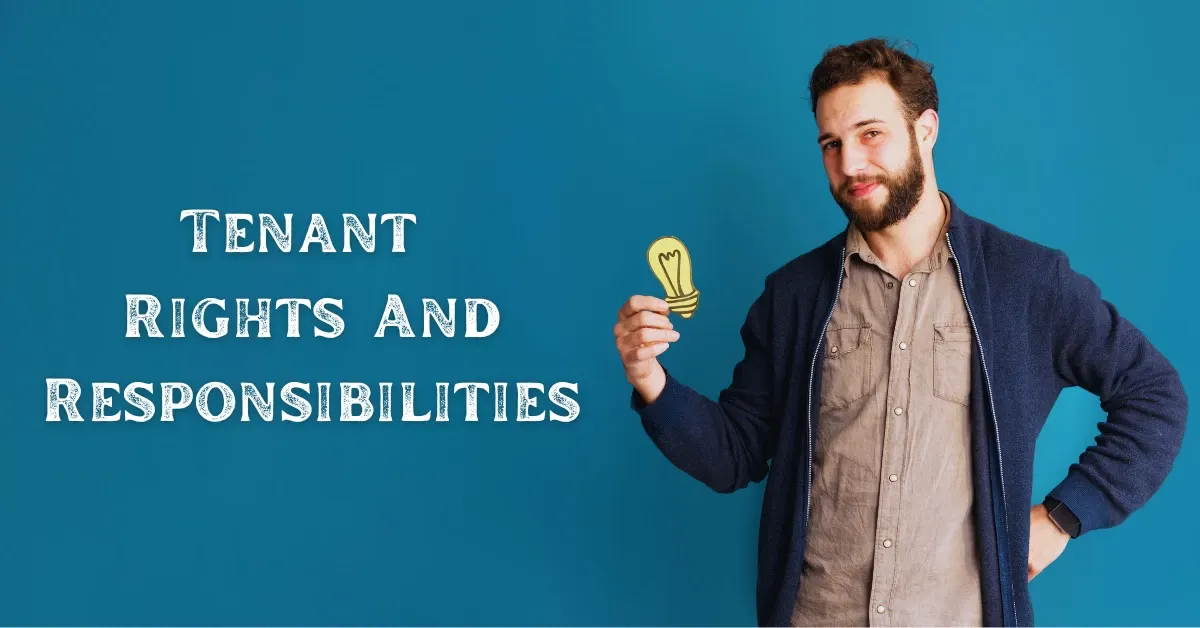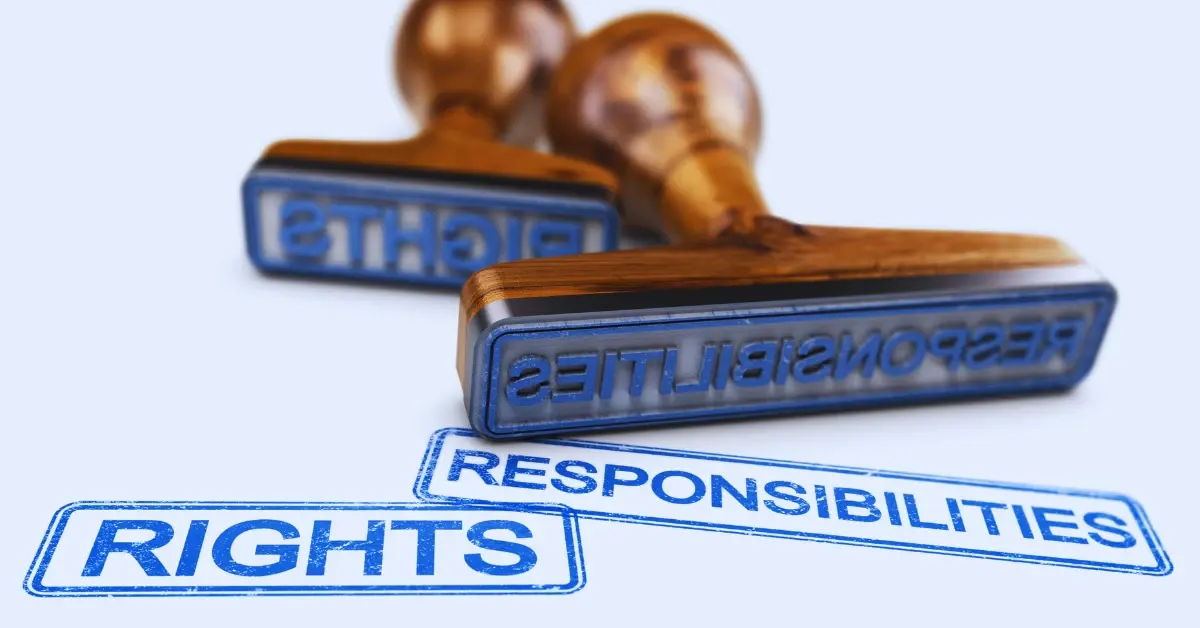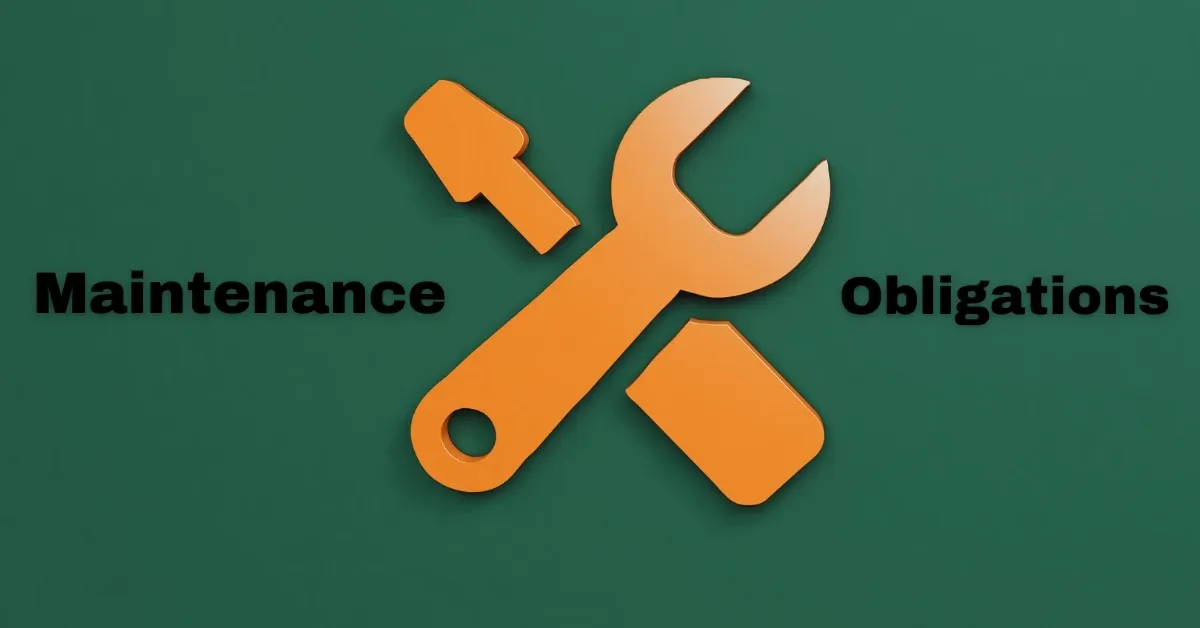Yes, tenants are generally responsible for light bulbs in their rental properties. Tenants are expected to perform basic maintenance tasks while living on a rental property, and replacing light bulbs fall under that category.
In most cases, landlords will include this requirement in the lease agreement. It is important to note that the specific terms of this responsibility may vary depending on the rental agreement, so tenants should always refer to their lease for clarification.
While some landlords may offer to replace light bulbs for their tenants as a courtesy, it is ultimately the tenant’s responsibility to ensure that all the bulbs in their residences are functioning properly. Failure to do so may result in the tenant being responsible for any damages or hazards that occur as a result.

Tenant Rights And Responsibilities

Overview Of Tenant Responsibilities
As a tenant, it’s your responsibility to keep your rented property clean and tidy, pay rent on time, and report any maintenance issues to the landlord or property management company.
These responsibilities are typically outlined in the rental agreement that you sign before moving in.
Can Tenants Be Held Responsible For Light Bulbs?
In most cases, tenants are responsible for replacing the light bulbs in their rental unit if they burn out.
This falls under the category of routine maintenance, which is typically the tenant’s responsibility.
However, there are exceptions to this rule, which is why it’s essential to understand your rental agreement.
Understanding Rental Agreements And Liabilities
Before signing a rental agreement, it’s crucial to read through it carefully and understand the terms and conditions.
Your rental agreement will outline what you’re responsible for as a tenant, including routine maintenance tasks like replacing light bulbs.
If you fail to comply with the terms of your rental agreement, you could be held liable for any damages or repairs needed beyond normal wear and tear.
It’s always better to clarify any doubts or questions before signing the rental agreement.
As tenants, you have specific responsibilities to maintain a rented property, which include the replacement of light bulbs.
Understanding your lease agreement plays a significant role here, as it outlines your responsibilities as a tenant.
In case of any doubts or confusion, the best practice is to consult with your landlord.
Landlord Rights And Responsibilities

Overview Of Landlord Responsibilities
As a landlord, it’s essential to provide a safe and healthy environment for your tenants.
This includes ensuring that all electrical systems and appliances are working correctly, including the lighting fixtures.
The landlord’s responsibilities towards the lighting in a rental unit typically fall under maintaining the primary fixture and wiring.
This includes ensuring that the electrical connection is working correctly, and the primary lighting fixture is safe and secure.
Can Landlords Charge Tenants For Light Bulbs?
Typically, tenants are responsible for changing light bulbs in their rental units.
However, landlords may decide to include the cost of light bulbs in the lease agreement, which means tenants will pay for them.
Landlords can charge tenants for light bulbs as long as the lease agreement clearly states that the tenant is responsible for supplying and replacing them.
However, if the landlord’s maintenance policies cover replacing burnt-out bulbs and the tenant has not caused any intentional damage, the landlord would be responsible for removing and replacing the bulb.
Clarifying Landlord And Tenant Rights
It’s essential to clarify the landlord and tenant’s rights and ensure that both parties understand who is responsible for what.
This includes responsibilities regarding light bulbs in rental units.
Below are the key points that need to be clarified for both tenants and landlords:
- Tenants are responsible for changing light bulbs in their units unless the lease agreement specifies otherwise.
- The landlord should ensure that the main lighting fixtures and wiring are functioning correctly and are safe and secure.
- All electrical work, including installing new lighting fixtures, should be left to licensed electricians.
- Landlords and tenants should communicate when it comes to maintenance and repair work, including the cost of light bulbs, to avoid any misunderstandings.
- If there is any intentional damage to the light fixtures caused by the tenant, the landlord can charge the tenant for repair or replacement.
Overall, as a landlord, it’s crucial to clarify your responsibilities, specifically around light bulbs, to avoid any misunderstandings with your tenants.
With clear lease agreements and open communication, landlords and tenants can maintain a positive relationship and a safe, healthy rental environment.
Maintenance Obligations

Who Is Responsible For Light Bulb Maintenance?
Light bulbs are essential for proper lighting in a rental property, but who is responsible for maintaining and replacing them?
The answer may depend on various factors, including the lease agreement and local laws. Here are some key points to consider:
- In general, tenants are responsible for replacing light bulbs in their units.
- Landlords may sometimes provide light bulbs as part of the unit’s move-in condition, but it’s not always a requirement.
- If the lease agreement specifies that tenants are responsible for light bulb maintenance, they should replace the bulbs with similar wattage and type.
- Landlords may be responsible for replacing light bulbs if they are in common areas or not easily accessible to tenants.
Best Practices For Maintaining Rental Properties
Regular maintenance of a rental property can help prevent major repairs and keep tenants happy. Here are some best practices to follow:
- Conduct move-in and move-out inspections to document the condition of the unit and any damages.
- Check smoke detectors and carbon monoxide detectors regularly, and replace batteries as needed.
- Schedule regular pest control treatments to prevent infestations.
- Keep the property clean and in good condition, including outdoor areas and common spaces.
- Repair or replace appliances and fixtures as needed to ensure they are in good working condition.
When To Contact The Landlord About Maintenance Issues
Tenants should notify their landlords as soon as possible if there are any maintenance issues that require attention.
Here are some situations when tenants should contact their landlord:
- If there is a leak or flood, especially if it affects multiple units or causes significant damage.
- If there is a problem with the heating or cooling system, especially in extreme temperatures.
- If there is a pest infestation that requires professional treatment.
- If there are issues with electrical or plumbing systems that could pose a safety hazard.
Remember, good communication between landlords and tenants is key to maintaining a rental property and keeping everyone happy.
Frequently Asked Questions On Are Tenants Responsible For Light Bulbs
Who Is Responsible For Replacing Light Bulbs In A Rental Property?
Tenants are typically responsible for replacing light bulbs in a rental property.
Do Landlords Have To Provide Light Bulbs For Tenants?
While not legally required, landlords may provide light bulbs for tenants as a courtesy.
What Happens If A Tenant Doesn’t Replace A Light Bulb?
If a tenant fails to replace a burned-out light bulb, they may be held responsible for any resulting damages.
Are There Any Exceptions When It Comes To Light Bulb Responsibility?
Exceptions to light bulb responsibility may vary based on the terms outlined in the lease agreement.
Conclusion
After analyzing the tenant’s responsibilities when it comes to light bulbs, we can conclude that it depends on the type of light fixture and the lease agreement.
Generally, tenants are responsible for replacing standard light bulbs, but landlords should be the ones to replace specialized or hard-to-reach lights.
This information should be discussed and agreed upon in the lease agreement to avoid any confusion or disagreements later on.
It’s important for both landlords and tenants to communicate clearly and maintain a professional relationship throughout the lease term.
Understanding the responsibilities of tenants in regard to light bulbs can prevent unnecessary disputes and help maintain a positive living environment.
By following these guidelines, landlords and tenants can ensure a hassle-free tenancy for all parties involved.
